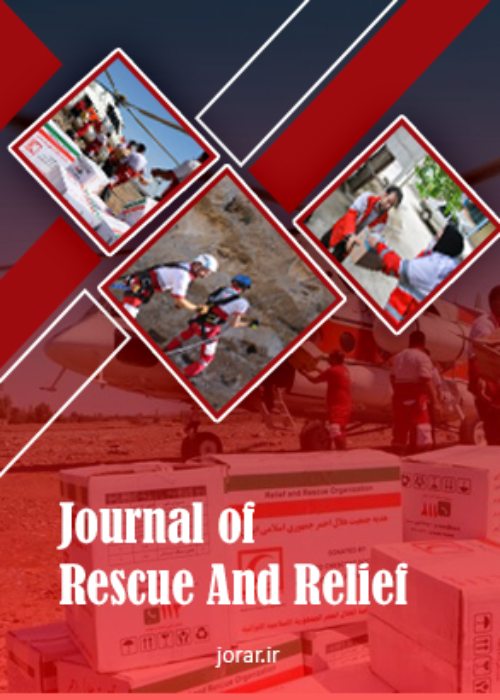Methods of acquiring insight, knowledge, and skills of self-protection in incidents and chemical warfare for the new students of army school of nursing
Author(s):
Abstract:
Background
Reviewing the history of human warfare, particularly recent wars, indicates that many countries have hidden or apparent access to chemical, biological, and nuclear weapons. The Iraqi Baathist regime used mustard gas against Iran 92 times during the war and its long-term complications can still be observed among the victims. In fact, the lack of correct attitude, knowledge, and skills regarding coping and protective measures caused Iran to be the biggest victim of chemical weapons in the world. This article aimed to provide methods to gain insight, knowledge, and skills regarding protective measures for chemical warfare for new students of the School of Nursing, AJA University of Medical Sciences in Tehran.Methods
This descriptive survey explored methods to gain insight, knowledge, and skills regarding protective measures for chemical warfare for the new students of the Army Nursing School. The study participants consisted of 78 nursing students who had not received military trainings in the school of nursing. The data gathering tool was a questionnaire and a researcher-made checklist. To determine the validity and reliability of the data collection tool, face validity and Cronbach's alpha were used, respectively. Results were analyzed using statistical tests in SPSS software (P Findings: The methods of acquiring knowledge on chemical warfare were Basij, high school defense preparedness course, broadcasting media, and textual sources with mean scores of 32.7, 37.7, 35.1, and 32, respectively. Moreover, the mean of insight regarding chemical warfare training methods were 102.8 for Basij trainings, 108.6 for high school defense preparedness course, 92.87 for broadcasting media, and 103.6 for newspaper and books. ANOVA test showed no significant difference in the methods of acquiring knowledge (P = 0.94) and insight (P = 0.16). This indicated that there were no significant differences among students regarding the knowledge and insight of chemical warfare methods. The impact of Basij on preparing students for self-protection was 44.18, high school defense preparedness course was 45.78, broadcasting media was 42.62, and newspaper and books were 44.0 . This indicated a statistically significant difference in the methods of acquiring personal protection skills during chemical attacks (PConclusion
Due to being at the forefront and confronting such events, raising the awareness of army nurses and training them appropriate skills is essential. Lack of such preparation or believing that such preparation is unnecessary is a disaster. In addition, medical centers and other accident-related organizations should hold workshops in this regard.Keywords:
Language:
Persian
Published:
Scientific Journal of Rescue Relief, Volume:7 Issue: 4, 2016
Page:
73
magiran.com/p1596483
دانلود و مطالعه متن این مقاله با یکی از روشهای زیر امکان پذیر است:
اشتراک شخصی
با عضویت و پرداخت آنلاین حق اشتراک یکساله به مبلغ 1,390,000ريال میتوانید 70 عنوان مطلب دانلود کنید!
اشتراک سازمانی
به کتابخانه دانشگاه یا محل کار خود پیشنهاد کنید تا اشتراک سازمانی این پایگاه را برای دسترسی نامحدود همه کاربران به متن مطالب تهیه نمایند!
توجه!
- حق عضویت دریافتی صرف حمایت از نشریات عضو و نگهداری، تکمیل و توسعه مگیران میشود.
- پرداخت حق اشتراک و دانلود مقالات اجازه بازنشر آن در سایر رسانههای چاپی و دیجیتال را به کاربر نمیدهد.
دسترسی سراسری کاربران دانشگاه پیام نور!
اعضای هیئت علمی و دانشجویان دانشگاه پیام نور در سراسر کشور، در صورت ثبت نام با ایمیل دانشگاهی، تا پایان فروردین ماه 1403 به مقالات سایت دسترسی خواهند داشت!
In order to view content subscription is required
Personal subscription
Subscribe magiran.com for 70 € euros via PayPal and download 70 articles during a year.
Organization subscription
Please contact us to subscribe your university or library for unlimited access!


